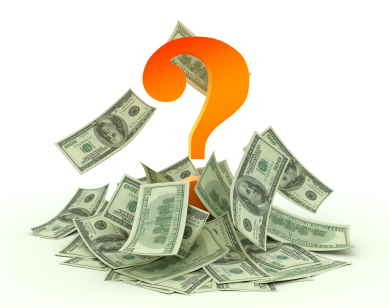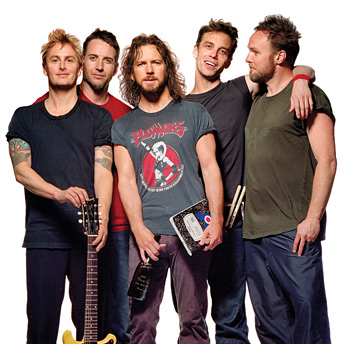A lot of my friends are great musicians who really pour their heart and soul into their work and I am truly lucky. Why? Because having worked in the industry for so long for both production music and commercial music entities, from independent to major publishers, and from focusing on strict marketing and sales to careful copyright consideration, I have learned a lot and get to help them out.
 One question has come up consistently over the years whenever artists come across a company like Pump Audio or Crucial Music. After reading through their sites an artist see the term “…represented on a non-exclusive basis…” and gets excited.
One question has come up consistently over the years whenever artists come across a company like Pump Audio or Crucial Music. After reading through their sites an artist see the term “…represented on a non-exclusive basis…” and gets excited.
Score! Someone’s going to put my music on TV and I get to keep my all my rights!
But hold on – what does “non-exclusive” really mean? In this two part blog, we’ll take a look at some of the differences between exclusive and non-exclusive contracts and how they could potentially effect your copyright value and revenue as an artist.
Non-Exclusive Basics
- You retain your rights.
- You typically get royalties from the artist’s share of your performance royalty.
- They typically keep the publisher’s share of the performance royalty.
- They typically take 50% of the synchronization fee (65% in the case of Pump!)
Exclusive Basics
- You retain your rights.
- You typically get 100% of the artist’s share of your performance royalty.
- The publisher’s share of performance royalty is negotiable.
- They typically take a negotiated percentage of the synchronization fee.
Hmm, doesn’t look too different does it? Let’s dig deeper.
Non-Exclusive:
Alright, the big benefit of being non-exclusive is that you can literally get your music out there, to anyone. You can register with as many non-exclusive entities that you like, you can get 3rd party PR representation, and you can shop your music to agency producers and TV/Film supervisors yourself. This is definitely a great thing. It means you can literally put your song in multiple places and have multiple people getting your music out to lots of supervisors and agencies.

This could mean that you get put up for a lot of opportunities, or in case your music is quite niche, that the few opportunities that come up your music is involved in.
But as you can probably tell by the way I’m writing there are some caveats to be aware of with a non-exclusive deal.
First, there are typically terms for these deals even though they’re non-exclusive. That means if you get offered an exclusive publishing deal but have signed a non-exclusive deal, some litigation may be involved to get you out of the non-exclusive contract so you can sign the exclusive one (if you want to).
Next, you MUST realize that these companies do NOT get top-dollar for the tracks that they license. A “low-budget” advertising sychronization fee, let’s just say, is around $15K. But, if the agency is looking for a pre-cleared track, chances are the most they’ll get is $3-4K, and that’s IF the fee is negotiated (in the case of Pump, the agency producer can ‘check-out’ online and fees are assigned at a set, flat-rate). This is BAD. It means that your music is only being put up for opportunities that will yield low dollars and probably have limited air-time (meaning your performance royalties are smaller too).
 That said you may have 50 scratch tracks sitting around from 1994 and weirdly, people aren’t listening for that sweet Ace of Bass sound anymore. Or, you may be in a rock band but have a bunch of film trailer tracks that you did for fun that are just collected digital dust – upload away! In this case, it’s bonus money for songs you don’t really care about.
That said you may have 50 scratch tracks sitting around from 1994 and weirdly, people aren’t listening for that sweet Ace of Bass sound anymore. Or, you may be in a rock band but have a bunch of film trailer tracks that you did for fun that are just collected digital dust – upload away! In this case, it’s bonus money for songs you don’t really care about.
However if you’ve got your heart and soul project and you’ve just started shopping it around, or you don’t know where to start but would LOVE to get your music on TV, it may be best to beat the street a little bit before you turn to a non-exclusive service.
There’s one more thing to consider and it’s something I like to call “perceived copyright value.” This simply means that when someone thinks of your song they associate a price point with it automatically depending on certain factors.
For example, if I told you I have a really great song and all my friends tell me it would be perfect for a commercial, you might roll eyes or punch me in the face depending on how many times you’ve heard that.
 But if I say “hey, I JUST released my new EP – it sounds awesome! I recorded in the same studio with the same engineers as Arcade Fire and it was produced by a guy who’s got 5 top fifty songs to his credit,” well, which one do you think sounds more expensive?
But if I say “hey, I JUST released my new EP – it sounds awesome! I recorded in the same studio with the same engineers as Arcade Fire and it was produced by a guy who’s got 5 top fifty songs to his credit,” well, which one do you think sounds more expensive?
The point is this – if an ad agency hears “pre-cleared,” they know that means less-expensive. Sure, it also means “easy to license” and that’s important to them a lot of times, but what they won’t do is bother to remember who the artist is that created the track or put it on their iPod (I mean never say never, but in reality it’s tough enough to get them listening to new major publisher stuff on their iPod).
If you’ve been thinking about doing one of these deals, I encourage you to take a look at the FAQ on their site and be really certain you know what you’re giving for what you get.
You can read more about what an exclusive deal might entail and also evaluate some pros and cons here. By then, you should have a really good idea of where you’re going to focus your efforts when it comes time to shop that shiny new song around!
 Option 1: I can get on the F train at Delancey/Essex, then change at West 4th street for the uptown C or E. I’ve made the commute as quick as about 20 minutes and typically it doesn’t take longer than 30 minutes.
Option 1: I can get on the F train at Delancey/Essex, then change at West 4th street for the uptown C or E. I’ve made the commute as quick as about 20 minutes and typically it doesn’t take longer than 30 minutes.
 If you have a goal set for yourself for today, or next week or this year – what are you actively doing to move closer to it? How can you take a step right now to simply DO that thing? If it’s a long term goal can you back-track from end-result to what you can do TODAY to progress just a little more towards the desired result?
If you have a goal set for yourself for today, or next week or this year – what are you actively doing to move closer to it? How can you take a step right now to simply DO that thing? If it’s a long term goal can you back-track from end-result to what you can do TODAY to progress just a little more towards the desired result?
 Ever notice how lots of commercials for the past few years have sounded a heck of a lot like the Juno Soundtrack? And before that all you heard were songs that sounded like “Clocks� The Moldy Peaches and U2 seemed to have made a lasting impression on advertising. Currently, that genre has been expanded and if you’ve got something folky and slightly under-produced that has whistling, hand-claps, a ukelele, or some combination thereof you’re seemingly in good shape.
Ever notice how lots of commercials for the past few years have sounded a heck of a lot like the Juno Soundtrack? And before that all you heard were songs that sounded like “Clocks� The Moldy Peaches and U2 seemed to have made a lasting impression on advertising. Currently, that genre has been expanded and if you’ve got something folky and slightly under-produced that has whistling, hand-claps, a ukelele, or some combination thereof you’re seemingly in good shape.
 Shouldn’t independent artists be in frequent contact with their fans? Shouldn’t they seem prolific? Wouldn’t scheduling yourself to write and record music be an insanely useful exercise? So why bust your ass to save up $5K, take FOREVER to complete a project, then release it and act surprised that you don’t immediately gain fame and fortune?
Shouldn’t independent artists be in frequent contact with their fans? Shouldn’t they seem prolific? Wouldn’t scheduling yourself to write and record music be an insanely useful exercise? So why bust your ass to save up $5K, take FOREVER to complete a project, then release it and act surprised that you don’t immediately gain fame and fortune? The game has changed. Consider using a
The game has changed. Consider using a 